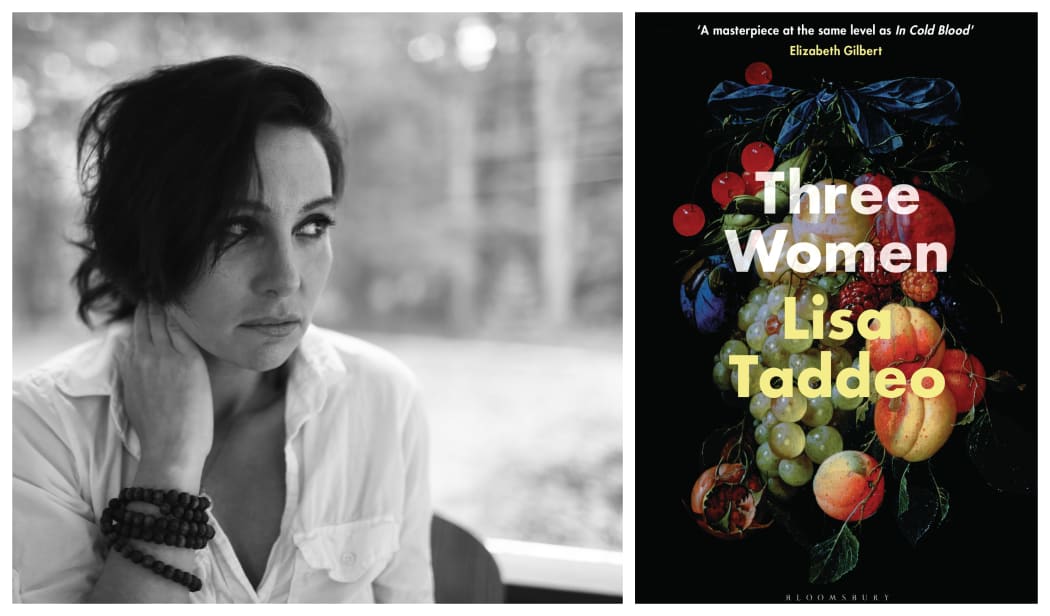US writer Lisa Taddeo spent eight years and thousands of hours tracking the women whose stories comprise Three Women.
The book has been described as putting sex in the mirror.
Taddeo explores our complicated relationship with sex through these three women; teenager Maggie, who brought charges against her high school teacher with whom she had a relationship, Lina whose husband won’t kiss her on the lips, and Sloane who is a swinger.

Photo: Supplied
The women aren’t representative of women’s desire, or any particular desire, but they speak powerfully of their own, Taddeo says.In the process of writing the book she spoke to hundreds of people, cutting it down to about 15 and then settling on the final three women.
She says two of the women identified as heterosexual and the other woman as bisexual.
While some may think of Sloane’s relationship with her husband as an unhappy one, it was one of the happiest marriages that Taddeo came across.
“At first glance, because we’re conditioned to do so, we look at a woman who is sleeping with other men, that she might not exactly want to be sleeping with, as a subversion of her own desires to please her husband.”
Lina’s husband wouldn’t kiss her on the lips and wouldn’t touch her for a decade. Eventually she reconnected with her high school boyfriend Aidan.
“That sex for her and that connection with him, that is more than she ever felt in her life. She’s no longer with that man, or with her husband, but she does not regret doing what she did, and I think when we get to a certain age, or any age really, we look back at the things we’ve done… often it’s the things we do that have the most passion attached [that] also come with the greatest pain, whether they end or not.”
People have called Lina’s situation pathetic, says Taddeo.
“I don’t think it’s pathetic, I think it’s indicative of how we can often feel at our most utter lowest moments.”
Taddeo wanted to remove herself as much as possible when writing about Lina.
“The reason I wrote the sex quite explicitly was because Lina was telling it to me that way and it was important for her as well because she was trying to imprint it in the world…the reason I wanted to really nail down these specifics is because she was so concerned by specifics…”
Taddeo was interested in what exactly was going through Lina’s brain when she was having sex.
The third person, Maggie, did not engage in a sexual relationship with her teacher out of a sexual desire but a desire to feel loved. She ended up reporting him and taking the case to court however he was acquitted.
Taddeo says she’s now a social worker, helping women who didn’t have the guidebook that she hopes her story will be.
“She feels like the book is offering her a sense of closure that she did not have prior because her stories hadn’t been heard.”
Taddeo says it was necessary she immersed herself in the three women’s lives; she spent eight years with the women and even moved to the same town as two of them for a period of time. She went shopping with them and went to the gym with them, always conversing but never giving them advice.
“I could have, in some sense, gone on for longer too…I left at the point where I wanted to stay longer but at the point where I knew there was enough for me to continue somewhere else.
She says one of the biggest mistakes we make is only talking about what we don’t want, not what we want.
“I think we’re still restricting ourselves and we’re still editing ourselves and when some women do talk about their pain, or their pain over a man or over another women, it seems like nowadays women just want to think that we should just be strong all of the time and if our stories delve into any kind of a need for something else it’s deemed pathetic and antiquarian."
The only way forward is not judging other people and to let them tell their stories, not edit them, she says.
“Pretending that wanting something that we can’t have is the opposite of feminism is the wrong way of looking at things…I think a lot of the time I’ve seen people judging other people is when they’ve felt that same feeling and projected that shame or fear onto someone else.”
It’s important to show human beings at the depths of what they want, she says.
“What I wanted to do is not show three women that represented all of desire, I just wanted to show people in a very specific fashion who would speak very powerfully of their own desire…”

